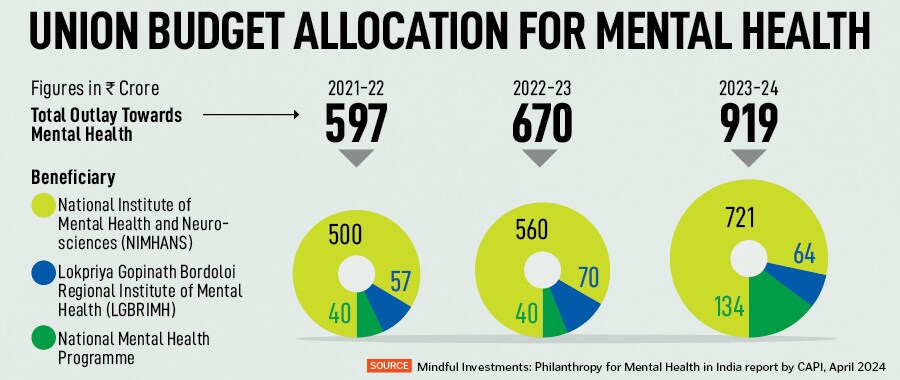
Philanthropy for mental health should focus more on community-led models
A new report by the Centre for Asian Philanthropy India analyses the funding landscape towards mental health in the country, and how knowledge and resource gaps can be bridged to mobilise donors
 In India, only a handful of philanthropists and organisations have been supporting mental health-related causes in recent years.
Image: Shutterstock
In India, only a handful of philanthropists and organisations have been supporting mental health-related causes in recent years.
Image: Shutterstock
India’s private sector often takes cues from government priorities, and the pattern of its philanthropic support to mental health is no different. A new report from the Centre for Asian Philanthropy India (CAPI) shows that while government allocations towards mental health—which forms just one percent of the overall Union health budget—is skewed towards institutions (see box), even philanthropists prefer to donate towards institutions or scientific research, as compared to grassroots community-led efforts.
The report by CAPI, which is a non-profit under the trusteeship Jamshyd N Godrej (chairman, Godrej & Boyce Manufacturing Company) and S Ramadorai (former vice chairman, Tata Consultancy Services), analyses the state of mental health care and funding in India, and provides pathways to deal with existing challenges. “There’s very little written about mental health from a non-medical perspective in India. As mental health begins to feature in donor portfolios, there might be others out there looking for guidance. This report aims to fill that knowledge gap,” says Ketaki Purohit, centre head, CAPI.
In India, only a handful of philanthropists and organisations have been supporting mental health-related causes in recent years. This includes Infosys co-founder Kris Gopalakrishnan, philanthropist Rohini Nilekani, Marico founder Harsh Mariwala, Wipro chairman Azim Premji, Biocon CMD Kiran Mazumdar-Shaw, Tata Trusts and Aditya Birla Education Trust.
Funding to institutions, community and research are three avenues in mental health for donors (see box). It’s easier for them to partner with a well-established institution for programmatic interventions or scientific research than do the additional work of finding communities that need help and can make good use of the funds, says Purohit. “Community organisations have gone out of their way to do impact assessments to show donors their models work, but this becomes an additional burden for them as impact assessments can be expensive,” she says.













